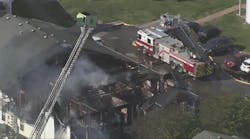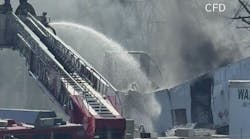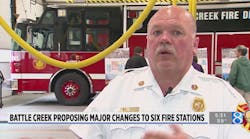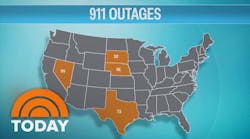The state firefighter pension system could be broke in 68 years unless lawmakers take action to shore up the underfunded system, the executive director of the Oklahoma Firefighters Pension and Retirement System told a legislative panel Thursday.
"We need to do something," Bob Jones told members of the Oklahoma House of Representatives Pension Oversight Committee.
Legislation that would have increased contributions by employees, cities and the state to the system won overwhelming approval this year in the House, but failed to advance in the Senate.
Firefighters supported the measure, but most cities opposed it.
The measure, House Bill 2320, would have increased the contributions from employees and cities by 1 percent. The state would have increased the amount of insurance premium taxes dedicated to the system.
The legislation would have put the firefighters pension, which now is funded at 61 percent, at 97 percent funded in 30 years, Jones said.
"It does provide long-term recovery for the pension system," he said. "It's really not that big of a change and it shows you how much a slight tweak early in the problem can be saved with the benefit of time."
Jones asked the committee to bring the legislation back next year.
Missy Dean, director of governmental relations for the Oklahoma Municipal League, said her group opposed the proposal because cities were not included in early talks. The leagues also is concerned another section of the measure would have taken away a right from an employee who is already vested in a pension program.
"We didn't think that was true reform," she said. "We've never been able to get numbers.
"Our people were more upset about being left out of the table if you're asking the cities to contribute more money because in the end it's taxpayer dollars that are going to it," Dean said.
She and Jones said not much discussion has taken place since the session ended in late May. But they met with a couple senators last month on what could be done to help the firefighters pension system. It's possible talks could continue.
Chalk Norton, a lobbyist for the Professional Fire Fighters of Oklahoma, said firefighters still support the concept.
"It's probably a good place to start this year," he said.
Rep. Randy McDaniel, who authored HB 2320 and is chairman of the House Pension Oversight Committee, said it's time for all sides to come together and find a solution "that is meaningful but also is achievable."
"There is a solution out there and I am committed to trying to find a solution," said McDaniel, R-Oklahoma City. "The simple fact is we have a plan that's on an unsustainable course. We need to change that situation.
"Sixty-eight years sounds like forever," he said. "But there's a point where a plan becomes so poorly funded that the cost becomes extraordinary to try to fix and that's well before the 68-year period."
Before the start of this year's session in February, McDaniel held four hearings on the firefighters pension fund and a rough draft of the legislation was developed in January.
"We couldn't have made it any more transparent and open to the public," he said.
Based on annual payroll figures for the system, the higher rates would have generated about $2.5 million per year from employer contributions and $2.5 million annually in additional employee contributions, McDaniel said. The state's increased share would be about $3.5 million a year.
The firefighter pension plan is for municipal employees. McDaniel said the state took over administration of the plan from the cities about 30 years ago when the plan was funded at 17 percent.
HB 2320 also dealt with the firefighter pension system's deferred retirement option, which is intended to provide greater savings for the system. The so-called DROP plan allows qualified members who would otherwise be eligible for retirement benefits to continue working and accrue money in a separate account.
Participating firefighters are eligible to receive either a 7.5 percent return on their investment or the system's annual investment returns minus 2 percent, whichever is greater. HB 2320 called for a flat rate of 7.5 percent.
McDaniel said he is disheartened cities still are resisting the proposal. The firefighters' pension plan was 53.4 percent funded a year ago; legislation he authored last year that required lawmakers to fund cost-of-living adjustments immediately improved the plan's funding status to 63 percent.
Committee members also discussed the process to pass legislation that would allow future "spillover" funds to shore up the state's pension systems. A measure introduced this year, Senate Bill 1264, would have provided that 30 percent of spillover money would go toward reducing the debt of the pension systems. Spillover money is money left over after the required surplus funds are deposited in the state's savings account, the Rainy Day Fund. Once all pensions systems are funded at 80 percent or more, the same share of spillover funding would be used to reduce the state's other indebtedness.
Legislation passed last year reduced the unfunded liability of the state's pension funds from $16 billion to $10.6 billion.
McDaniel said changes still are needed because retirees are living longer and the ratio of the number of workers to retirees is decreasing.
Copyright 2012 - The Oklahoman, Oklahoma City
McClatchy-Tribune News Service





